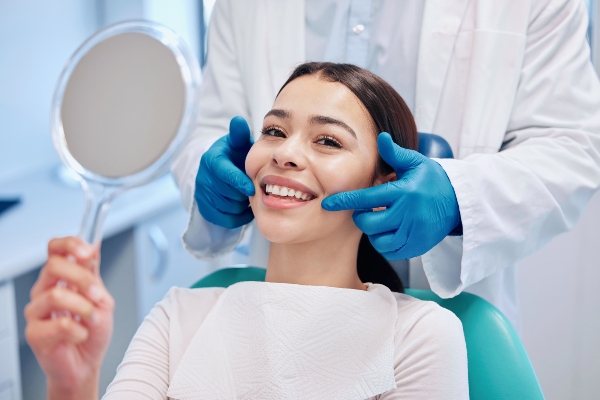 An emergency dentist can provide fast relief from various dental problems. However, proper aftercare is necessary for a smooth recovery. Taking the right steps can help manage pain, prevent complications, and speed up healing. By following a few tips, you can protect your oral health and feel better faster.
An emergency dentist can provide fast relief from various dental problems. However, proper aftercare is necessary for a smooth recovery. Taking the right steps can help manage pain, prevent complications, and speed up healing. By following a few tips, you can protect your oral health and feel better faster.
Follow all aftercare instructions carefully
Emergency dentists are often general dentists offering immediate treatment for dental emergencies. They will also provide detailed aftercare instructions based on the specific procedure performed. These guidelines typically include advice on managing discomfort, keeping the treated area clean, and avoiding activities that could interfere with healing.
For instance, after a tooth extraction, patients are advised to avoid vigorous rinsing, drinking through a straw, or touching the area to prevent complications like dry socket. Those receiving emergency root canals or dental fillings will need to avoid hard foods and watch for unusual symptoms. Following these care instructions helps ensure a smooth recovery and reduces the risk of infection or further dental issues.
Manage pain and swelling
Pain and swelling are common after emergency dental procedures, especially extractions, deep cleanings, or infection treatment. Over-the-counter pain relievers and cold compresses can help manage discomfort. If a patient receives antibiotics or pain medication, they must take them as directed to prevent infection. Resting for 24 to 48 hours supports healing, and if the pain worsens or does not improve, the patient should contact the emergency dentist for further evaluation.
Stick to a soft food diet
Diet can significantly impact healing. For the first 24 hours, an emergency dentist may recommend eating only soft foods that require minimal chewing to reduce strain on the treated area and minimize irritation. Yogurt, mashed potatoes, smoothies, scrambled eggs, and soup are great options. Crunchy, sticky, or excessively hot foods should be avoided, as they can cause discomfort or dislodge blood clots in cases of extractions. Gradually reintroducing regular foods as healing progresses helps ensure a smooth transition back to a normal diet.
Do not forget about oral hygiene
Maintaining good oral hygiene helps prevent infection and ensures a smooth recovery. A general dentist or emergency dentist will often recommend brushing gently around the affected area with a soft brush to avoid irritation. If they prescribe a mouth rinse, use it as directed to reduce bacteria and inflammation. For extractions or oral surgery, rinsing with warm salt water after 24 hours can aid in keeping the area clean. It is best to avoid alcohol-based mouthwashes, as they can cause dryness and irritation.
Schedule a follow-up visit
Some emergency dental treatments require follow-up visits to a general dentist; they can monitor healing and ensure no further issues are present. Procedures such as root canals, extractions, and temporary fillings often require additional care to complete treatment. Missing these appointments can lead to unresolved dental problems or the need for more extensive procedures in the future. If symptoms such as prolonged pain, swelling, or difficulty eating persist, scheduling a follow-up visit promptly can help address any underlying concerns before they become more serious.
Get more tips from an emergency dentist
Following the tips above can make for a smoother recovery after seeing an emergency dentist. The dentist will discuss more aftercare and recovery tips during your appointment. Contact our Kelso team today to learn more.
Request an appointment or call Meadowlark Family Dentistry at 360-218-2322 for an appointment in our Kelso office.
Related Posts
An emergency dentist provides urgent care for individuals experiencing sudden dental issues that require immediate attention. Understanding what qualifies as a dental emergency can help patients determine when to seek professional help. While some dental problems may seem urgent, others can be addressed with routine care. Whether due to a sudden injury, severe pain, or…
A damaged tooth can cause significant pain and lead to more severe dental issues when not treated as soon as possible. An emergency dentist can preserve oral health when unexpected dental injuries occur. Whether the damage results from an accident, a fall, or biting onto something hard, immediate professional guidance and treatment can prevent further…
Knowing whether to visit an emergency dentist or an emergency room can make a significant difference in receiving the right care. Dental emergencies can be painful and distressing, but not all require a hospital visit. An emergency dentist is often the best option for immediate relief and specialized treatment. However, understanding where to go in…
